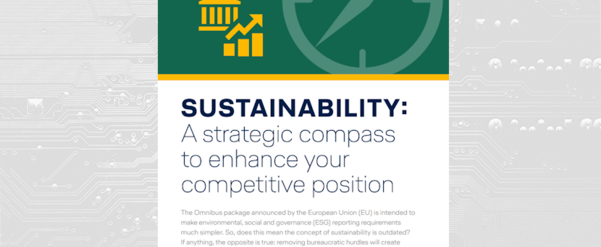The EU's planned simplifications to ESG reporting requirements are creating new opportunities for companies. Rather than endlessly working through regulatory requirements, companies can now analyze environmental and social impacts more systematically and accurately. The new whitepaper, "Sustainability: Strategic Compass for Greater Competitiveness" from Lufthansa Industry Solutions.
Norderstedt, September 30, 2025 – "Many companies mistakenly interpret lower compliance requirements as a signal that ESG (environmental, social, and governance) issues will become less important in the future," says Ulrike Stroh, an ESG expert at Lufthansa Industry Solutions (LHIND). "In fact, however, this opens up new scope for strategic sustainability management that goes far beyond mere compliance."
The EU's simplifications are considerable. The number of mandatory data points will be reduced by more than half, and the EU taxonomy reporting forms will be shortened by 70 percent. This development could benefit small and medium-sized enterprises in particular. Rather than allocating resources to complex documentation requirements, companies can invest specifically in sustainable technologies and resilient processes. For instance, intelligent energy management systems can prevent peak loads and reduce operating costs, and new processes for utilizing industrial waste heat can significantly lower energy requirements in production.
Double materiality analysis serves as a strategic compass
As the core of a sustainable strategy, LHIND recommends consistently applying double materiality analysis, even for companies not formally required to report. "It is developing into an early warning system for business management," explains ESG expert Stroh. "Suddenly, risks and opportunities that were not previously captured in traditional control systems become visible.
The analysis systematically records the company's impact on the environment and society, as well as the reverse influences of external sustainability developments on its own business model. "Sustainability cannot be viewed in isolation in one department," emphasizes Ulrike Stroh. "It requires strategic coordination across departmental boundaries and changes the entire corporate culture."


